Crisis! What Crisis? Ensuring Continuity of Learning In Disruptive Times
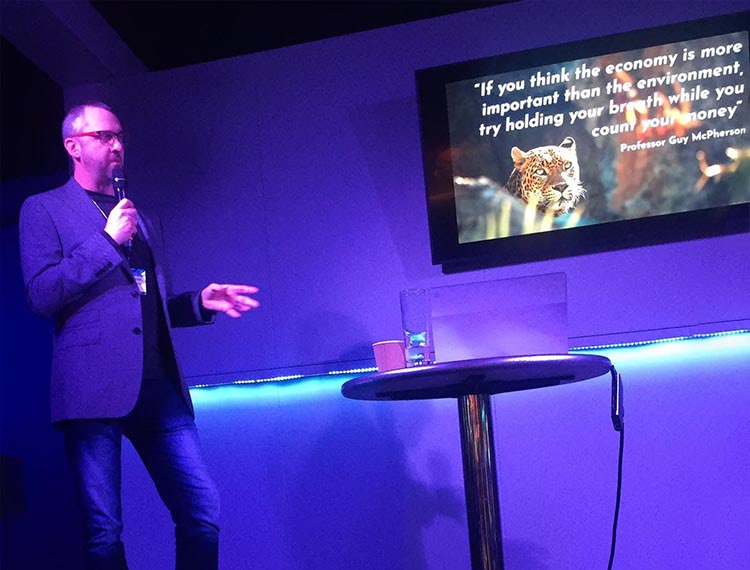
How #EdTech can help educators to overcome the challenges of the #CoronavirusPandemic
For many in education the coronavirus means that innovation isn’t optional, as noted at the @JISC #Digifest conference in Birmingham this week. As the situation escalates to a global pandemic, Governments have been scrambling to manage a perfect storm of social and economic challenges now impacting people, processes and infrastructure in all walks of life. Just as the coronavirus is new, meeting the challenges it presents requires new thinking and new ways of doing things.

I’ve been party to numerous conversations this week involving somewhat anxious staff, often from a technical background, struggling to provide answers to senior teams on how their organisations will manage business continuity for teaching and learning in the event of a widespread self-isolation scenario.
Necessity breeds invention as they say, although in this case there is actually no need for invention as solutions are already there to be applied.
Despite the challenges of our troubled times, I’m optimistic having spent nearly a decade in FE. In FE there is the talent, proven track record of resilience, agility and innovation to show the way.
FE has a demonstrable track record of having to adapt to changing and challenging circumstances and the current pandemic presents it with both one of its greatest potential challenges, but opportunities also.
The scale of the challenges have arguably never been greater as the coronavirus pandemic may present educators with a need for radical and fast change very different to the challenges of years of austerity that have played out over many acts. The dramatic falls on the global stock markets are a proxy for both the potential scale and speed of the disruption that’s coming to a college near you.
Despite the scale of the challenges my contention is that technology can not only help us to manage and mitigate many of the risks we face, but can create a smarter and better world in the process.
This was evident at Digifest event this week, a festival of digital innovation facilitating connections between innovative educators meeting some of the biggest challenges we face, and doing so with confidence through the effective application of impactful technology.
My presentation at the event was focused on some of our biggest challenges, namely climate change and the coronavirus, and how we can adapt to new ways of learning, working and living that meets these challenges if we are open to using technology that makes our lives smarter.
A few simple insights
For the purpose of this article I want to share a few simple insights that any educator, anywhere, can apply irrespective of budget or their digital skills so that no matter what challenges the spread of the coronavirus might present, learning can continue. Not only that, we might improve a few things on the way.
I’ve long believed that for technology to have any impact at all, it must do two critical things.
- Be simple to use.
- Make your life better.
If it does both of the above, you will not only use it you will likely love it. If we look at the challenges we might face around restrictions to travel, managing risks posing a threat to our health or a sudden necessity to enable more flexible working possibilities, there are technologies out there that can enable us to do all of these things quickly and in some cases without any significant investment.
For the purpose of this article I am going to take one example, Google Classroom, because it’s the best example. I am well aware that it’s not the done thing to say this, and to give this article greater credibility I should strive to present a more academically rigorous, objective and balanced series of referenced arguments rather than a series of specific subjective opinions, but these are extraordinary times requiring decisive action and leadership so you will have to forgive me if on this occasion I say sod it to all that because Google Classroom is number one globally with tens of millions of educators using it for a good reason. Educators right now are soon to be under unprecedented pressure to find solutions to enabling seamless online learning to a diverse range of stakeholders. During such times the risk of backing the wrong solution is higher. This is not the time to invest in dancing robots or 3d screens. Look globally to the best established leading solutions that have impact, and go with it. If you’d rather use technology that isn’t simple to use and doesn’t make your life better, the rest of this article isn’t for you. For anyone who just needs to be able to ensure continuity of learning without needing a specialist IT team to support it, months of training and a new budget line to pay for it, and you don’t fancy investing in that dancing robot, read on. You’re among friends.
Lesson One: Simple to use
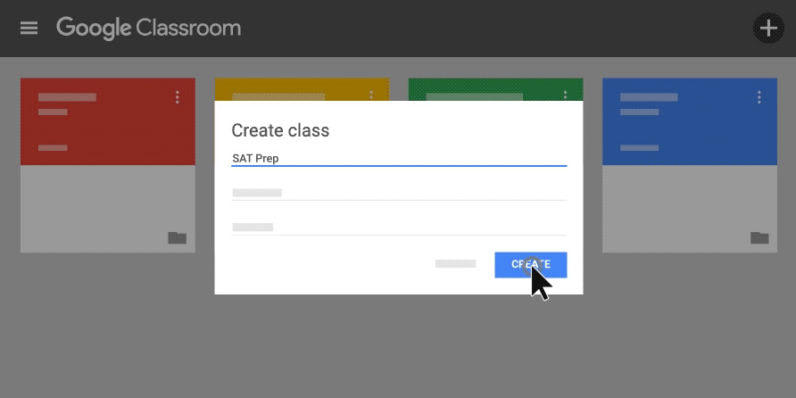
Google Classroom is easy to use. The first time you use it the system will guide you through the basics of what you need to do to set up a new classroom.
Wider help is also readily available from every source you can think of, from online resources like YouTube where a thriving network of educators have uploaded multiple short videos for easy access to the Google website itself.
Help is also readily available via a thriving online community of brilliant educators in UK colleges on platforms like Twitter, and you’d have to go a long way to find a more friendly, collaborative and inspiring group of people.
Whilst it would take up too much space to list all of the brilliant educators in UK colleges sharing and collaborating on Twitter and using Google Classroom by way of signposting you to people who regularly share on the platform, but connecting to the following people is well worth it.:
- @1charliehammond of Coleg Sir Gar,
- @S_spence10 of The Sheffield College,
- @hope_steven of Leeds City College,
- @AleksandraHouse of Leeds City College,
- @scottdhayden of Basingstoke College of Technology
- @zbukhari197 Zaitoon Bukhari of Witton School
- @Nelkcarps Gary Spracklen of the Prince of Wales School
- @Scott3142 Scott Morgan at Bridgend College
- @danfitztweets Dan Fitzpatrick part of Edufuturists
- @paulmfarrell our very own brilliant Google for Education certified Trainer and Innovator Mr Paul Farrell
- @MrCaffrey the outstanding Andrew Caffrey along with the brilliant training teams at EdTechTeamUK
- @CloudBusiness9 For my part I am more than happy to connect directly with anyone on Twitter to share insights and experiences with Google Classroom and wider edtech that can help to meet the current challenges facing educators.
Follow and engage with these brilliant educators and world class support is but a tweet away.
One of the brilliant characteristics of educators I’ve never taken for granted is the sense of community born from a shared passion for a common purpose, namely transforming the life chances of others.
These people have taken ownership of a part of Twitter. Seek them out.
Lesson Two: Make life better
G-Suite for Education and Google Classroom make life better because they are a complete learning and working productivity suite enabling everyone from a teacher to a manager to a student to do what they need to do, when they want to do it on the device they want to use. It’s that simple.
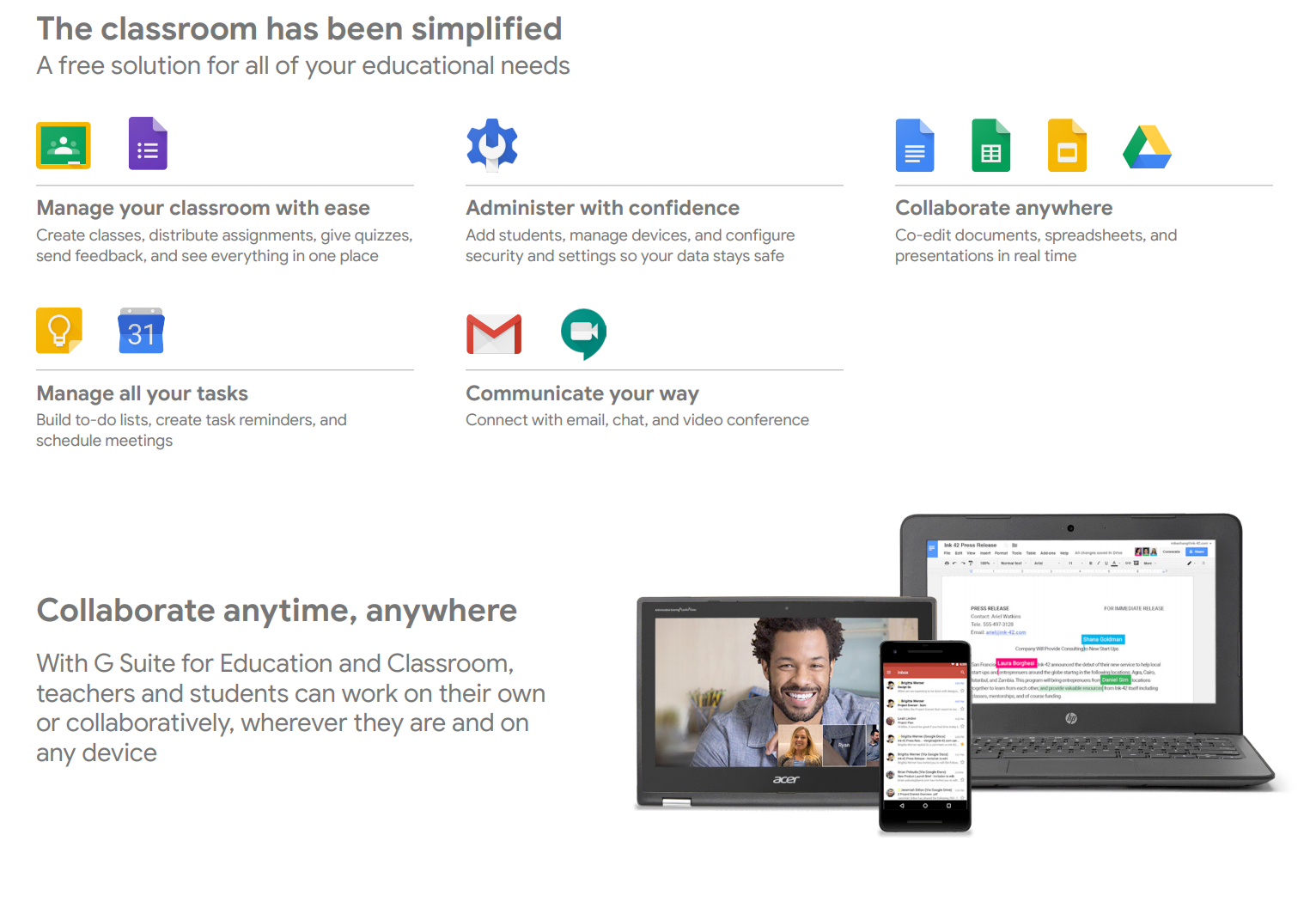 Whether it’s a snow day, corona day or something else that means travelling to a fixed location on a campus is not an option, if you’re using Google G-Suite for Education you can be assured of learning continuity along with the more than 90 million other educators using it globally. This is about to become a lot more important for educators in the UK. As the UK moves to the second phase of its management process for the global pandemic the Prime Minister has stated that there is no plan to close schools and colleges yet. Note the word yet. It’s coming, and when it does, possibly within weeks, can you ensure continuity of learning? Not only is it possible, it can be done quickly and very easily if you connect with the right people to help.
Whether it’s a snow day, corona day or something else that means travelling to a fixed location on a campus is not an option, if you’re using Google G-Suite for Education you can be assured of learning continuity along with the more than 90 million other educators using it globally. This is about to become a lot more important for educators in the UK. As the UK moves to the second phase of its management process for the global pandemic the Prime Minister has stated that there is no plan to close schools and colleges yet. Note the word yet. It’s coming, and when it does, possibly within weeks, can you ensure continuity of learning? Not only is it possible, it can be done quickly and very easily if you connect with the right people to help.
Google G-Suite is a game changer. You can share files to any device via Google Drive, use Google Meet to have a hangout with students to deliver online lectures or discussion forums, get immediate feedback to tailor different learning techniques to create highly personalised learning experiences in real time and much more. Should a learner have a mobility issue or a hearing impairment Google also has that covered, whether it’s removing the need to travel by delivering learning to where the student is, or whether it’s the advanced live captioning function in a video call that uses artificial intelligence to provide a transcript for students who may have a hearing impairment, the solutions are there and can be accessed on anything from a mobile phone to a chromebook and wider.
One of the amazing benefits of Google G-Suite is how it enables peer to peer social learning networks through seamless live collaboration. As many of you likely already know, seeing your students collaborating live through self directed learning that you’re in control of is an immensely empowering and inspiring thing as it removes distance as a barrier and brings the teacher and learner closer together in a collaborative space.
Lesson Three: It’s all about people

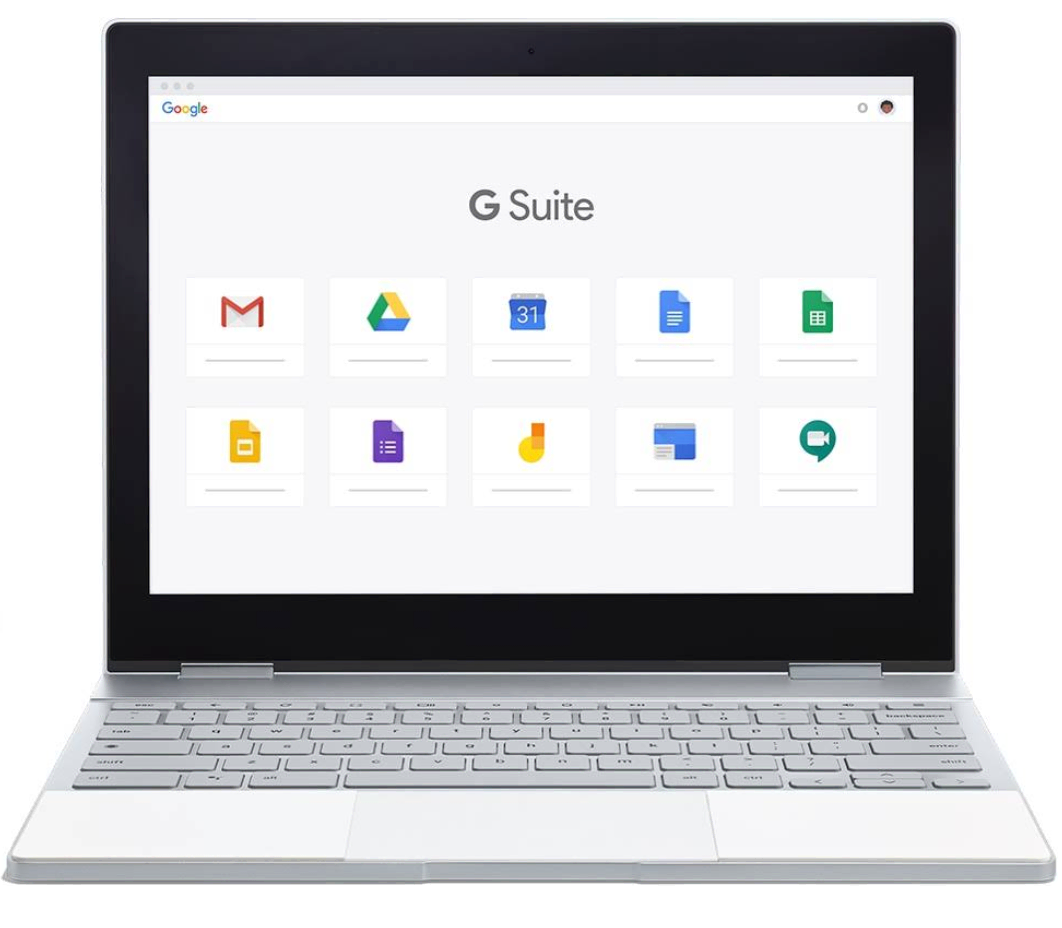
Google G-Suite takes the remote out of remote working and brings people closer together, increasing communication and collaboration compared to more conventional learning and working patterns.
At Digifest this week it was slightly surprising how many schools and colleges are yet to embrace smarter ways of working and are finding themselves facing the necessity to now change rapidly to meet new demands.
The good news is that if you decided to, you could be up and running with all of the previously mentioned tools in a matter of days.
The impact will be that your students will love it because they now meet their learning commitments from any device and location as part of their untethered, collaborative and empowered lifestyle. It’s 21st century learning as it should be done.
Given the worldwide phenomenal success of Google Classroom and the wider Google G-Suite productivity tools for education help and support is everywhere, from brilliant educators a few of whom are referenced in this article previously to Google Premier Education Partners like my company C-Learning, now part of the Delling Cloud Group working with several thousand innovative educators in more than 20 countries, there is help to get you going quickly, easily and with no fuss, just positive impact.
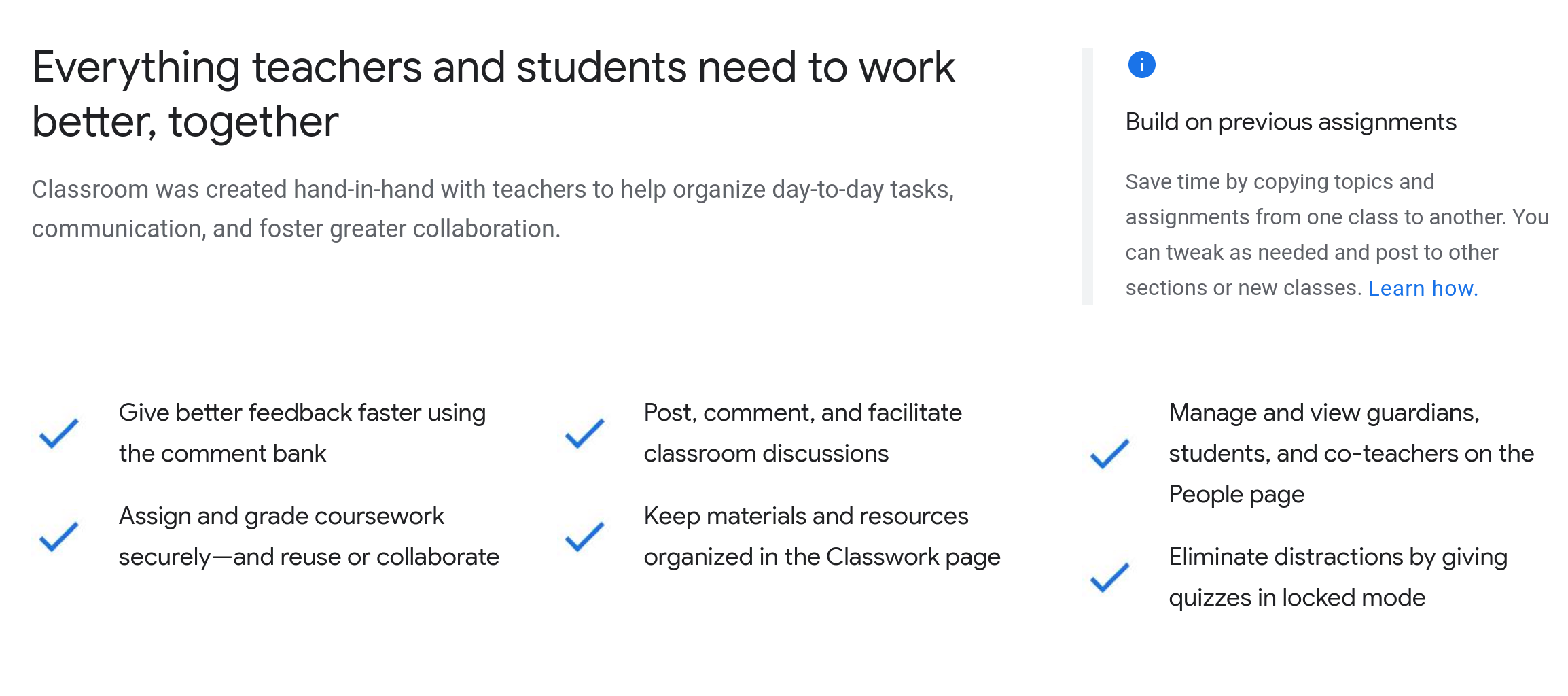 Once educators have experienced how much time can be saved alongside using technology that just works and can be trusted to do so, it’s hard to go backwards from working smarter.
Once educators have experienced how much time can be saved alongside using technology that just works and can be trusted to do so, it’s hard to go backwards from working smarter.
For me, I found Google Classroom many years ago because it did everything I was looking for in enabling me to create engaging, enriching and enlightening online learning experiences that brought my learning community closer together.
It’s a technology co-created with educators for educators, and you can feel it.

There is no way to write this without it looking like a sales pitch but current conventions have been suspended so I will just write it. If you want help with any of the above, getting started or perhaps more advanced support, our teams can help and will do so without any sales pitch.
There is actually a direct reason why you won’t get a sales pitch from my team and its the same reason I observed from one of the most successful car salespeople I ever met in my life. He used to sell a certain prestige type of car and when a potential buyer would take one for a test drive, he would sit there beside them and say nothing. Absolutely nothing.
After a few minutes when the silence was becoming a bit awkward they would invariably ask him questions and would often say things like ‘isn’t it your job to try and sell me this car? Tell me about its features’ to which my friend would respond by saying ‘I don’t need to sell you this car or tell you about its features. The car speaks for itself’. He became the youngest national Managing Director of that company in its history.
Reason for the anecdote? It reminds me of Google G-Suite. You don’t need to sell it to anyone, you just need to make the introduction.
FE, meet Google Classroom. You’re going to get along.
Jamie E Smith, Executive Chairman, C-Learning












Responses